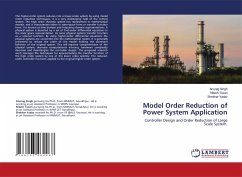High Quality Content by WIKIPEDIA articles! In thermodynamics, entropy is commonly associated with the amount of order, disorder, and chaos in a thermodynamic system. This stems from Rudolf Clausius' 1862 assertion that any thermodynamic processes always admits to being reduced to the alteration in some way or another of the arrangement of the constituent parts of the working body and that internal work associated with these alterations is quantified energetically by a measure of entropy change, according to the following differential expression. In the years to follow, Ludwig Boltzmann translated these alterations into that of a probabilistic view of order and disorder in gas phase molecular systems. In recent years, in chemistry textbooks there has been a shift away from using the terms order and disorder to that of the concept of energy dispersion to describe entropy, among other theories. In the 2002 encyclopedia Encarta, for example entropy is defined as a thermodynamic property which serves as a measure of how close a system is to equilibrium as well as a measure of the disorder in the system
Bitte wählen Sie Ihr Anliegen aus.
Rechnungen
Retourenschein anfordern
Bestellstatus
Storno








